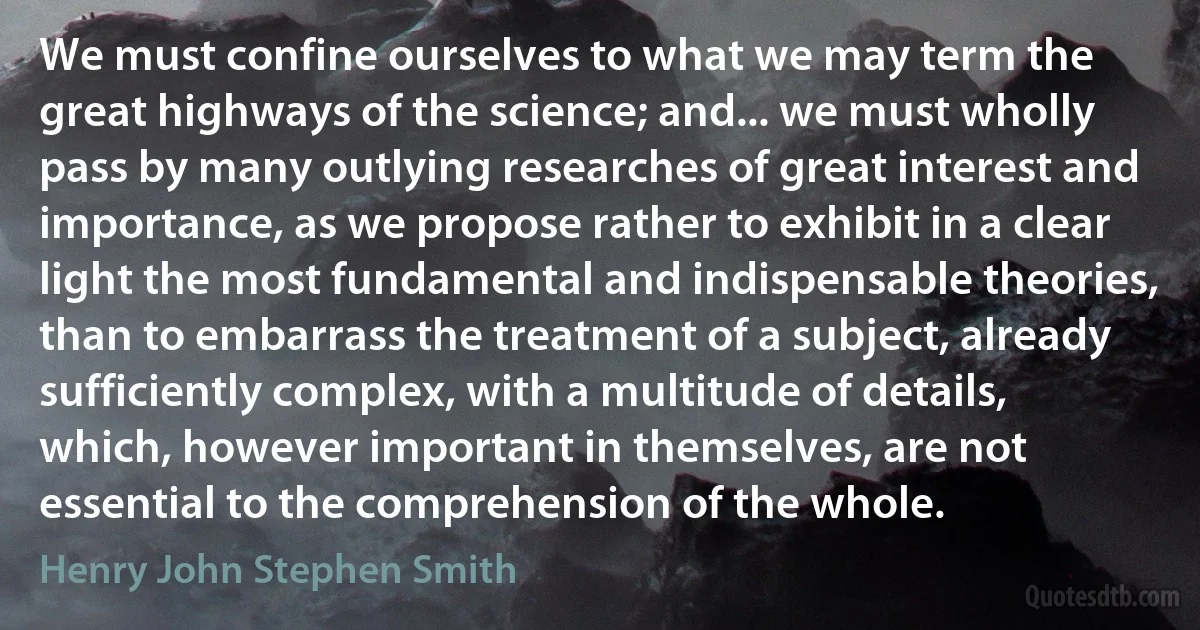Henry John Stephen Smith quotes
The first demonstration (Disq. Arith., Arts. 125-145) which is presented by Gauss in a form very repulsive to any but the most laborious students, has been resumed by Lejeune Dirichlet in a memoir in Crelle's Journal... and has been developed by him with that luminous perspicuity by which his mathematical writings are distinguished.

Henry John Stephen Smith
So intimate is the union between Mathematics and Physics that probably by far the larger part of the accessions to our mathematical knowledge have been obtained by the efforts of mathematicians to solve the problems set to them by experiment, and to create for each successive class phenomena a new calculus or a new geometry, as the case might be, which might prove not wholly inadequate to the subtlety of nature. Sometimes the mathematician has been before the physicist, and it has happened that when some great and new question has occurred to the experimentalist or the observer, he has found in the armory of the mathematician the weapons which he needed ready made to his hand. But much oftener, the questions proposed by the physicist have transcended the utmost powers of the mathematics of the time, and a fresh mathematical creation has been needed to supply the logical instrument requisite to interpret the new enigma.

Henry John Stephen Smith
The problem of the direct determination of the primitive roots of a prime number is one of the 'cruces' of the Theory of Numbers. Euler, who first observed the peculiarity of these numbers, has yet left us no rigorous proof of their existence; though assuming their existence, he succeeded in accurately determining their number. The defect in his demonstration was first supplied by Gauss, who has also proposed an indirect method for finding a primitive root.

Henry John Stephen Smith
[H]e had a difficulty in deciding between classics and mathematics, and there is a story to the effect that he finally solved the difficulty by tossing up a penny. He certainly used the expression: but the reasons which determined his choice in favor of mathematics were first, his weak sight, which made thinking preferable to reading, and secondly the opportunity...

Henry John Stephen Smith
In 1858 he was selected by [the British Association] to prepare a report upon the Theory of Numbers. It was prepared in five parts, extending over the years 1859-1865. It is neither a history nor a treatise, but something intermediate. The author analyzes with remarkable clearness and order the works of mathematicians for the preceding century upon the theory of congruences, and upon that of binary quadratic forms. He returns to the original sources, indicates the principle and sketches the course of the demonstrations, and states the result, often adding something of his own. The work has been pronounced to be the most complete and elegant monument ever erected to the theory of numbers, and the model of what a scientific report ought to be.

Henry John Stephen Smith

